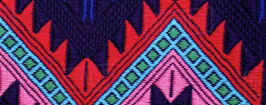In November, a Kenyan woman was stripped naked in broad daylight by a mob of men at a city bus stop in Nairobi and the brutal attack was caught in graphic detail on a subsequently-viral and now-deleted video on Youtube. Her crime? Wearing a miniskirt which was deemed ‘indecent’, ‘tempting’ and ‘un-African.’ In public outrage, social media campaign #MyDressMyChoice was born—mobilizing over 1,000 Kenyan women who took to the streets to demand an end to violent street attacks and impunity against the attackers, while others around the world spoke out on Twitter and Facebook. Sadly, this was neither an isolated nor new incident. From Kenya to Zimbabwe to Uganda to Swaziland and the world over, women are experiencing backlash for dressing ‘indecently’ and have been standing up and speaking out against street attacks. This incident has given greater global recognition about the true nature of violence against women and the failure of our institutions to keep women safe.
The Kenyan woman was going about her day as she usually does—selling hard boiled eggs at the bus stop. After a misunderstanding over money with a customer, the man decided to attack her dressing and rallied other men to follow suit. In the video footage, several men can be seen surrounding the woman, shouting demeaning names such as “Jezebel” and pulling her clothes away as she tries to escape, ripping away any scarfs handed to the woman by passers-by to help her cover up. Even after the #MyDressMyChoice campaign, other women were still attacked and the videos posted on Youtube.
 These are not isolated incidents. Recently, a woman was stripped naked at a taxi rank (where taxis park waiting for customers) in Harare, Zimbabwe and a month before that, a similar attack took place prompting women to “reclaim their streets“, confronting taxi drivers and bus conductors in their place of work, and refusing to be silenced. Even though their action was met with heckling, explicitly sexist and verbal abuse, it set social and mainstream media abuzz. In February, Ugandan women protested notorious Ethics and Integrity Minister, Simon Lokodo’s “miniskirt law”, a measure to ban women from exposing their breasts, buttocks and thighs and from “dressing indecently in a manner to sexually excite.” Uganda’s not the first country to consider public “indecency” acts and other such legislation that are created almost entirely to monitor and restrict women’s choices and movements in the city.
These are not isolated incidents. Recently, a woman was stripped naked at a taxi rank (where taxis park waiting for customers) in Harare, Zimbabwe and a month before that, a similar attack took place prompting women to “reclaim their streets“, confronting taxi drivers and bus conductors in their place of work, and refusing to be silenced. Even though their action was met with heckling, explicitly sexist and verbal abuse, it set social and mainstream media abuzz. In February, Ugandan women protested notorious Ethics and Integrity Minister, Simon Lokodo’s “miniskirt law”, a measure to ban women from exposing their breasts, buttocks and thighs and from “dressing indecently in a manner to sexually excite.” Uganda’s not the first country to consider public “indecency” acts and other such legislation that are created almost entirely to monitor and restrict women’s choices and movements in the city.
How women dress is yet another excuse being used to justfy violence against women. When governments respond by legaliizing the policing women’s bodies, they also become complicit in perpetuating and making violence against women possible, normal and acceptablle. This also encourages impunity because women are blamed for the violence they experience while the perpetrators can continue to commit violent acts without consequences. Walking in the street becomes unsafe for women. Yet, miniskirt or not, women experience violece simply because they are women. This then begs the question, what is the real issue? What does it mean to be a woman? For South African activist and co-founder of SAY-F (South African Young Feminist Activists), Wanelisa Xaba, as a woman “you become aware of how your body is read…In Johannesburg a few years ago a woman was stripped in a taxi rank. And there was this [belief] that women have to dress in a certain way and if they don’t, they ‘deserve’ to be raped or attacked or shamed…” The deeper and underlying problem is about the norms and beliefs of how women are valued and viewed: who decides what is “decent” or “African” to wear? Why can’t women be the decision makers of things that affect their bodies? Tackling these street attacks involves challenging these underlying norms and understanding the history and factors that justfy it.
Despite these street attacks, women are courageously stepping out and speaking out. Women around the world are refusing to keep silent on violent and sexist efforts to dictate and define what it means to be a woman on the streets, in the home, the workplace and everywhere else. Globally, the Slutwalk Movement proved a rallying cry for women to fight back against rape culture. Women and women rights activists across the African continent have carved their own resistance strategies in direct response to their experiences and contexts, from the ongoing #MyDressMyChoice conversation in Kenya to JASS partner, Katswe Sistahood’s Reclaiming Our Streets protests. JASS works alongside Katswe Sistahood in dialogue with other allies such as the Swaziland Young Women’s Network and Zambia’s Generation Alive to crack open the lid on body politics and a woman’s right to choose what to do with her body, push beyond country borders and foster transnational solidarity as a way to strategize effectively against violence.
Photo credit no. 1: BBC
Photo credit no.2: Newsday


























